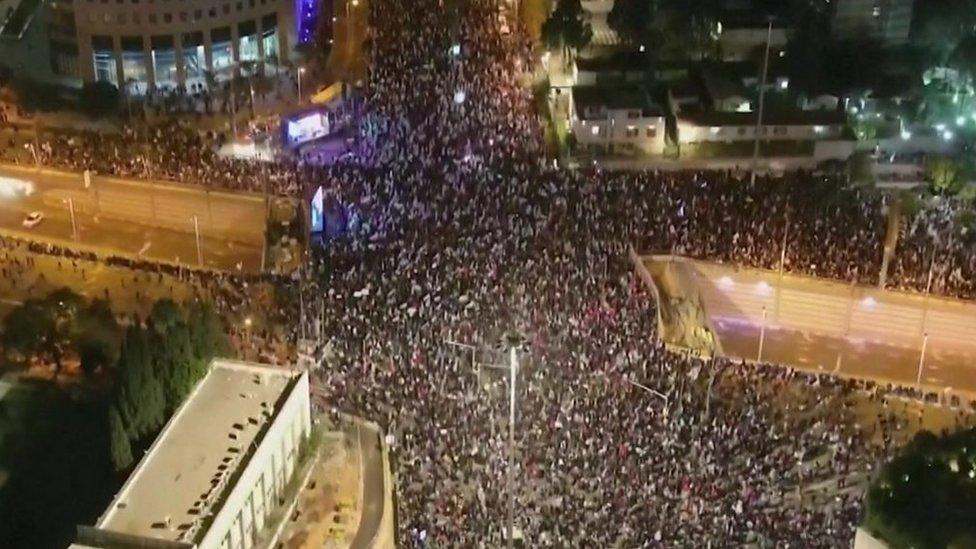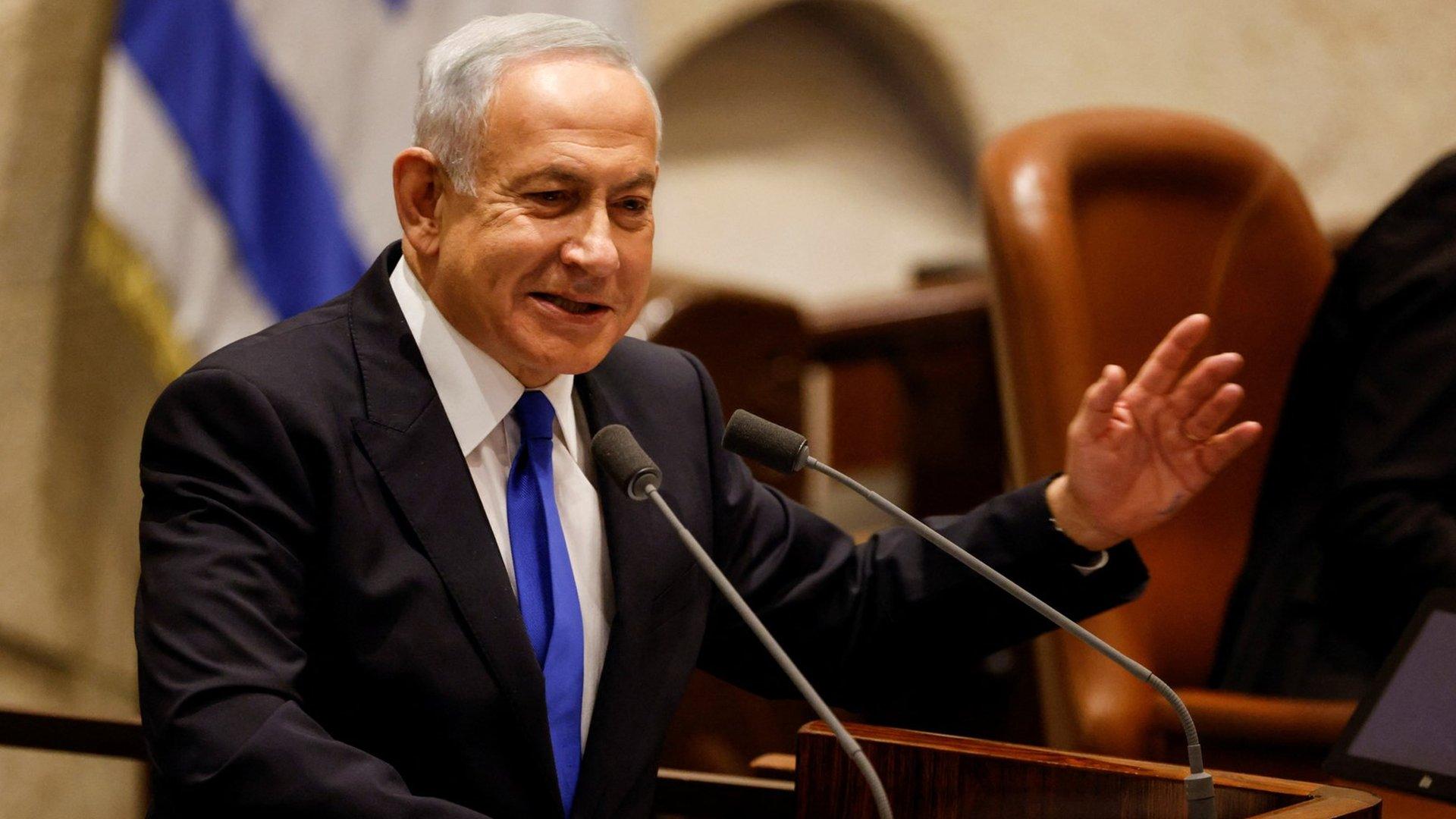Israel judicial reform plans draw mass protests outside parliament
- Published

Protesters demonstrated outside parliament and around Israel on Monday
Tens of thousands of Israelis have protested outside their parliament against controversial judicial reform plans which have divided the country.
Israel has seen some of its biggest demonstrations in years since the plans were unveiled last month.
If passed, they would curb the Supreme Court's power and give the government more say over judicial appointments.
Critics say it will undermine democracy; the government argues the reforms will strengthen it.
"I feel very distressed, very nervous, I have a lot of sleepless nights," said Helit from Ness Tziona, south of Tel Aviv, who came with her daughter.
"I think they will change. I hope so... but I think [it will be] only for a while. Then things will change again for the worse."
Dore, a lawyer from Tel Aviv, was one of thousands whose offices shut to enable staff to attend the protests.
"I'm here because my heart has been torn to pieces seeing what the new government is doing to Israeli democracy," he said.
"You know they are tearing apart the spirit of this country. And they are threatening the power of the legal systems. I cannot see it happening without protesting against it."

Helit: "I feel very distressed, very nervous, I have a lot of sleepless nights"
In an unusual step, US President Joe Biden appeared to criticise the proposals in their current form in comments printed in the New York Times on Sunday, external - a rarity for a US leader to express an opinion on constitutional matters in Israel.
Israel's own President, Isaac Herzog, warned that the country was on the verge of constitutional and social collapse. Involvement by Israeli presidents in political issues are also rare since the post is considered to be a politically neutral figurehead.
Monday's demonstrations are the latest in weekly mass protests against the reforms. Opponents say the plans will politicise the judiciary and could lead to an authoritarian government.
Prime Minister Benjamin Netanyahu says the current system where laws passed by an elected parliament can be overturned by the Supreme Court is undemocratic.
Among the planned reforms, the ability of the Supreme Court to strike down laws would be severely weakened. A simple majority in the Knesset (Israel's parliament) would also have the power to override court rulings.
The reforms would also give the government more influence over the committee which appoints judges, including to the Supreme Court.
Israel's Justice Minister Yariv Lavin, who introduced the plans, accused opponents - including the attorney general and Supreme Court's chief justice - of seeking to "carry out a coup" against Mr Netanyahu, after a petition was filed to the court to declare the prime minister unfit for office.
Related topics
- Published21 January 2023

- Published21 January 2023

- Published5 January 2023

- Published29 December 2022

- Published22 December 2022
